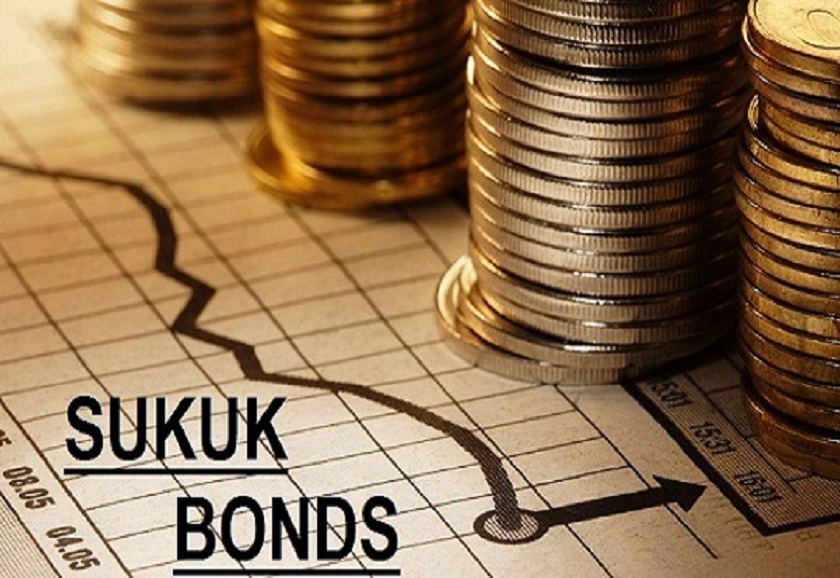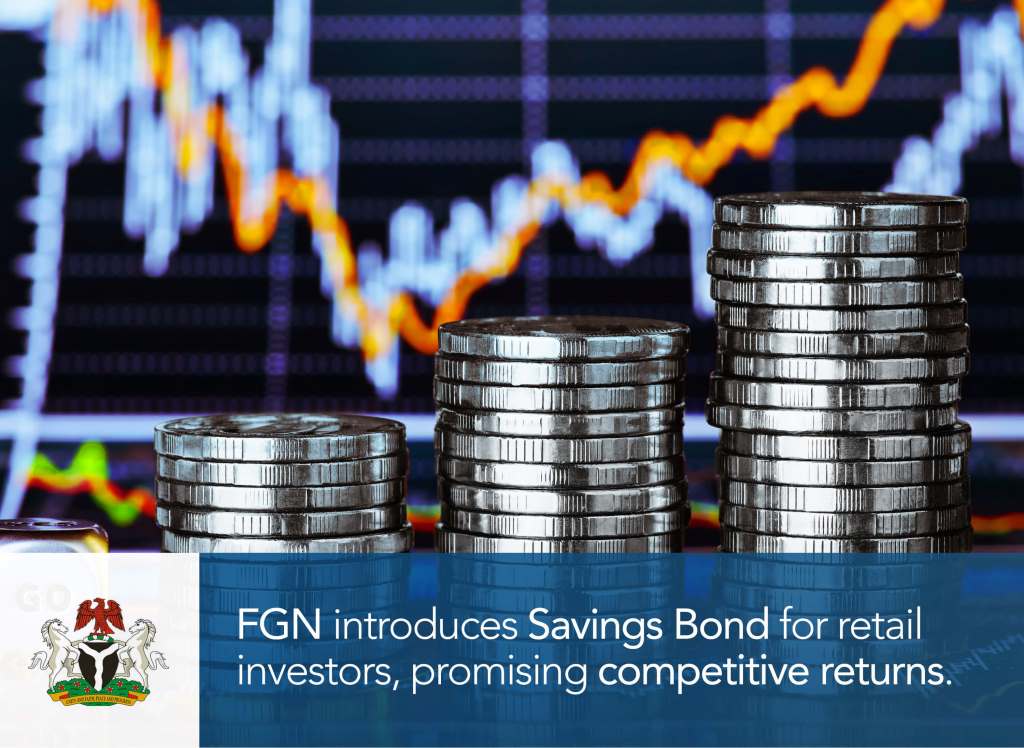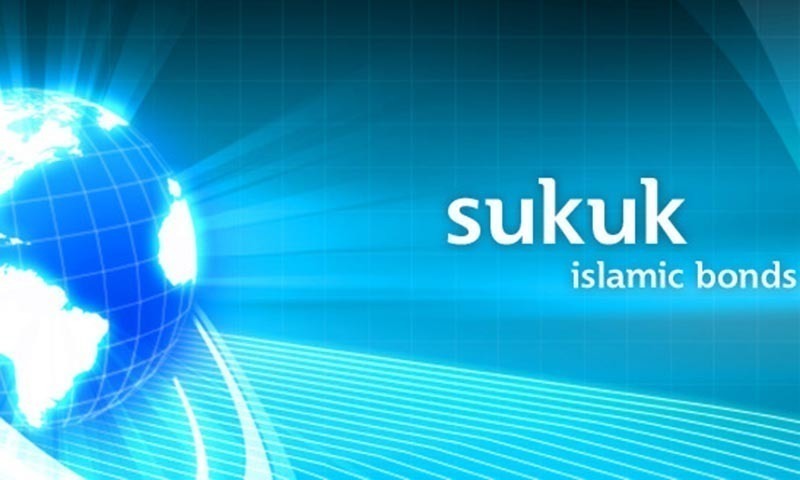Economy
Islamic Finance Vital to Nation’s Economic Growth—Report

By Dipo Olowookere
A report jointly released by Thomson Reuters and the Islamic Corporation for the Development of the Private Sector (ICD) has stressed the role Islamic finance plays in the sustaining the growth of economy of a country.
Thomson Reuters is the world’s leading provider of intelligent information for businesses and professionals, while ICD is the private sector development arm of the Islamic Development Bank (IDB).
The key findings of the fifth edition of the Islamic Finance Development Report and Indicator (IFDI) were released at the World Islamic Banking conference (WIBC) 2017 held in Bahrain.
The report studied key trends across five indicators used to measure the development of the $2.2 trillion Islamic finance industry which are: Quantitative Development, Knowledge, Governance, Corporate Social Responsibility and Awareness. It also compiled extensive statistics on the industry from 131 countries and highlighted the best-performing countries within each key area of performance.
The IFDI global average value, which acts as a barometer of the overall industry’s development, recovered to 9.9 in 2017 from 8.8 in 2016. This reflected improved performances in each of the five indicators. Malaysia, Bahrain and the UAE lead the IFDI country rankings for the fifth consecutive year, while the GCC remains the leading regional hub for the industry.
Countries in the Commonwealth of Independent States (CIS), Europe, East and West Africa saw notable improvements in their IFDI values, demonstrating the continued growth of Islamic finance in non-core markets.
The report also highlights how Islamic finance can help countries adapt to difficult economic conditions.
Nadim Najjar, Managing Director of Thomson Reuters in the Middle East and North Africa, said: “We have seen that the Islamic finance industry can serve as a strategic tool for policymakers for sustainable growth in order to cope with the aftermath of the economic slowdown that impacted markets such as the Middle East.
“Some markets had noteworthy improvements in their IFDI values when they have improved or introduced Islamic finance to fit their economic needs and attract investments like Morocco, Tunisia and Iraq.”
Khaled Al Aboodi, CEO of ICD, said: “Incorporating Islamic finance in different strategies can be seen in the many steps taken by governments across different IFDI indicators. This was noticed when some authorities intervened in Islamic social funds management, raised literacy in the industry among potential market players through formal education systems, organized roadshows targeting potential market players, or built a roadmap to plot development of the overall industry.”
Islamic finance sector recovers strength and assets continue to grow
Quantitative Development, which measures the performance of Islamic financial institutions and capital markets, advanced the most of the five indicators as a partial recovery in oil prices helped Islamic financial institutions and mutual funds regain strength.
Sukuk grew least of the Islamic finance sectors as some large sovereign issuers resorted to conventional bonds to ease the issuance process and lower costs.
Yet even here, sukuk showed signs of promise as new players came to market and Saudi Arabia emerged as a new sovereign sukuk giant.
There was also an increase in consolidation within the industry. Mergers were agreed between Islamic financial institutions in the GCC, Pakistan, Indonesia and Malaysia that are likely to strengthen their competitive edge.
The reversion to strength after last year’s oil price-led downturn saw total Islamic finance industry assets rise 7 percent to $2.2 trillion in 2016 and it is expected that assets will continue to rise, to $3.8 trillion by 2022.
Governments looking to improve Islamic finance education and literacy
The Knowledge indicator, which encompasses education and research, also edged higher in the latest report.
There were 677 Islamic finance education providers in 2016, of which 191 provided a total of 322 Islamic finance degrees. Governments in Bahrain, Malaysia and Indonesia made particular efforts to push Islamic finance education and literacy.
Governments improving regulatory regimes to encourage industry
As governments sought to push Islamic finance to help revive economies hit by the fall in oil prices, Governance gained the most of the five indicators. Each of its Regulation, Shariah Governance and Corporate Governance sub-indicators showed improvement.
The number of Shariah scholars increased, and several countries began to push for external Shariah scholars and centralized Shariah boards. There were 44 countries in 2016 with specific Islamic finance regulations. Many of these pushed for takaful regulations or tax concessions for sukuk.
Corporate social responsibility another strong gainer, though disclosure still too low
The indicator for Corporate Social Responsibility (CSR) was another strong gainer, with improvements in both performance and disclosure by Islamic financial institutions.
The total CSR funds disbursed by different Islamic financial intuitions increased 18 percent over the year, to $683 million.
The number of institutions reporting CSR activities also increased, but the global average for reporting disclosure remains low. Despite this, there are developments that will contribute to a stronger CSR in the future including interventions in managing zakat, waqf and charity by the governments of the UAE, Malaysia and Indonesia.
Conferences and seminars exploring mutual values of Islamic and ethical finance
As governments turned their attention towards Islamic social financing, a growing number of conferences and seminars explored the common ground between Islamic and ethical finance, particularly in Europe. This helped the Awareness indicator to edge higher, despite a slowdown in growth of news articles on the industry.
Other popular themes of conferences and seminars included socially responsible investing, sukuk, and microfinance. The rise in number of Islamic microfinance events was particularly noticeable in Africa.
Economy
Nigeria to Export New Crude Grade Cawthorne in March

By Adedapo Adesanya
The Nigerian National Petroleum Company (NNPC) Limited is set to commence export of a new light, sweet crude grade known as Cawthorne from March 2026.
According to a report by Reuters, an NNPC spokesperson confirmed the development, describing it as part of efforts to increase output and consolidate Nigeria’s recent recovery in crude oil production.
The move aligns with Nigeria’s broader strategy to boost production after years of constraints caused by pipeline vandalism, crude theft, and unrest in oil-producing regions.
This follows the launch of two other new grades, Obodo in 2025 and Utapate in 2024, Nigeria, whic,h as Africa’s top oil exporter, seeks to strengthen its standing within the Organisation of the Petroleum Exporting Countries and its allies (OPEC+)
Cawthorne crude is scheduled for export in the third week of March and has an API gravity of 36.4, making it similar in quality to Nigeria’s Bonny Light, which is prized for high petrol and diesel yields.
According to Reuters, citing a trading source, the state oil national company issued a tender last week for cargo loading between March 24 and 25.
Analysts at Kpler noted that the new grade is expected to be exported via the Floating Storage and Offloading (FSO) vessel Cawthorne, which has a storage capacity of about 2.2 million barrels. The vessel is designed to enhance transportation and production from Oil Mining Lease (OML) 18 and nearby assets in the Eastern Niger Delta.
Kpler estimates that, based on storage capacity, Cawthorne could increase Nigeria’s crude and condensate output from roughly 1.65 million barrels per day to around 1.7 million barrels per day for the remainder of the year.
Nigeria’s crude oil production recently dropped from the OPEC+ quota of 1.5 million barrels per day, with output at 1.48 million barrels per day recorded in January, according to OPEC data.
Beyond increasing Nigeria’s crude offerings to the international market, the introduction of Cawthorne could also attract buyers seeking specific light, sweet crude qualities, buoy foreign exchange earnings, which would help strengthen government revenue and ease borrowing needs.
New crude grades are typically differentiated by sulfur content, API gravity, and production source, enabling producers to target specific refinery configurations and market segments.
In November 2024, NNPC officially launched the Utapate crude oil blend in the international market, describing it as a milestone for Nigeria’s export profile.
Earlier in July 2024, NNPC and its partner, Sterling Oil Exploration & Energy Production Company (SEEPCO), lifted the first 950,000-barrel cargo of Utapate crude, which was shipped to Spain.
Economy
Moniepoint Research Shows Diminishing Role of Cash in Nightlife Payments

By Modupe Gbadeyanka
A new report released by Africa’s leading all-in-one financial ecosystem, Moniepoint Incorporated, has revealed that the use of cash for financial transactions is gradually dying due to security concerns.
The study, which looked into transaction data of over 27,000 clubs, bars, and lounges, showed that bank transfers dominated, followed closely by card payments, with cash actively discouraged. It was observed that transfers outpace card payments by nearly 2 million transactions during peak nighttime hours across its network.
In the research titled The Business of Community Nightlife in Nigeria, findings provided a rare, data-driven look into the country’s informal night economy.
While high-end Detty December venues grabbed headlines with daily revenues of N360 million and table prices reaching N1.2 million, Moniepoint’s study shifted the spotlight to the “community nightlife” where roadside bars, suya spots, and neighbourhood joints form the bedrock of social life for millions of Nigerians.
One of the study’s most operationally significant findings concerns the timing of spending. Nightlife in Nigeria runs late, but economically, the night is decided early.
Transaction volumes begin climbing sharply from 8 pm, peak before midnight, and then decline steadily even as venues remain full. By the time the night is at its longest, purchasing activity has already wound down.
However, for bar operators, this has clear practical implications – the most critical hours for staffing, stocking, vendor payment and cash flow management are the earliest hours of the day between midnight and 6 am.
The report further underscores the sector’s role in employment, noting that local bars typically expand their workforce by 30-50 per cent on peak nights. Conservative estimates suggest that at least 54,000 people are engaged in nightlife labour every night across Nigeria.
It was also observed that the most common transaction narrations from the data sourced – “food”, “pay”, “sent”, “pos”, “cash” – reflect the full breadth of nightlife spending: street food, club entry, lounge tabs, transport, and afterparties. Digital payments have gained huge traction in Nigeria’s social space.
While alcohol remains a key revenue driver, the data shows that food is the quiet stabiliser of Nigeria’s night economy, particularly in local and informal settings. In several neighbourhood venues, bottled water and meals outsell beer and spirits, especially early in the evening.
Lagos leads in sheer concentration of nightlife establishments, with 4,856 bars, clubs, and lounges on the Moniepoint network. FCT follows with 2,515, then Rivers (2,362), Delta (1,930), and Edo (1,574).
Katsina leads the country in nighttime food truck payment value, with vendors pulling in over N130 million in the last 12 months. Kwara State leads in transaction count. Nigeria’s nightlife economy is distributed, not overly elitist.
On the lending side, the report noted that a significant share of loan requests from bar and lounge operators is directed toward renovations, furniture, lighting, and sound systems, showing that investments are intended to attract and retain customers in a competitive sector where ambience plays a decisive role.
Commenting on the report, the chief executive of Moniepoint, Mr Tosin Eniolorunda, said, “Nigeria’s local bars and night-time operators are not peripheral to the economy; they are a critical part of its architecture. We see a substantial and sustained economic sector that employs hundreds of thousands of Nigerians every night and deserves the same attention we give to agriculture, healthcare, and retail.
“Our goal is to make sure every one of those businesses has the tools to grow. From giving credit to finance renovations and sound systems to providing same-day settlement that allows vendors to restock and with tools like Moniebook that power inventory management and reconciliation, Moniepoint is ensuring that this vital artery of the nation’s economy remains viable and empowering.”
Economy
CBN Reduces Interest Rate by 50 Basis Points to 26.50%

By Adedapo Adesanya
The Central Bank of Nigeria (CBN) has cut the interest rate by 50 basis points to 26.50 per cent from 27 per cent.
Nigeria’s apex bank announced this during its two-day 304th Monetary Policy Committee (MPC) meeting, which concluded on Tuesday in Abuja.
This comes after the country’s interest rate cooled in January to 15.10 per cent from 15.15 per cent, according to the National Bureau of Statistics (NBS), strengthening the case for a reduction.
The CBN Governor, Mr Yemi Cardoso, said all members of the MPC unanimously agreed upon the decision.
“The committee decided to reduce the monetary policy rate by 50 basis points to 26.50 per cent,” he said.
Mr Cardoso stated that the liquidity ratio was maintained at 30 per cent, and the standing facilities corridor was adjusted to +50 to -450 basis points around the monetary policy rate.
He said the committee retained the Cash Reserve Ratio (CRR) at 45 per cent for commercial banks and 16 per cent for merchant banks, while the 75 per cent CRR on non-TSA public sector deposits was equally maintained.
The CBN uses the MPR, which works as the benchmark interest rate, to manage inflation, macroeconomic stability, and liquidity.
Last November, the MPC retained the Monetary Policy Rate (MPR) at 27.00 per cent. The last time the apex bank cut interest rates was in September last year, to 27 per cent from 27.50 per cent after a series of easing in inflation.
Market analysts had argued for higher interest cuts due to results seen in the CBN’s inflation targeting framework. Meanwhile, some say the 50 basis points reduction will offer a temporary reprieve as inflation heads for a single-digit target in the coming months.
-

 Feature/OPED6 years ago
Feature/OPED6 years agoDavos was Different this year
-
Travel/Tourism10 years ago
Lagos Seals Western Lodge Hotel In Ikorodu
-

 Showbiz3 years ago
Showbiz3 years agoEstranged Lover Releases Videos of Empress Njamah Bathing
-

 Banking8 years ago
Banking8 years agoSort Codes of GTBank Branches in Nigeria
-

 Economy3 years ago
Economy3 years agoSubsidy Removal: CNG at N130 Per Litre Cheaper Than Petrol—IPMAN
-

 Banking3 years ago
Banking3 years agoSort Codes of UBA Branches in Nigeria
-

 Banking3 years ago
Banking3 years agoFirst Bank Announces Planned Downtime
-

 Sports3 years ago
Sports3 years agoHighest Paid Nigerian Footballer – How Much Do Nigerian Footballers Earn




















